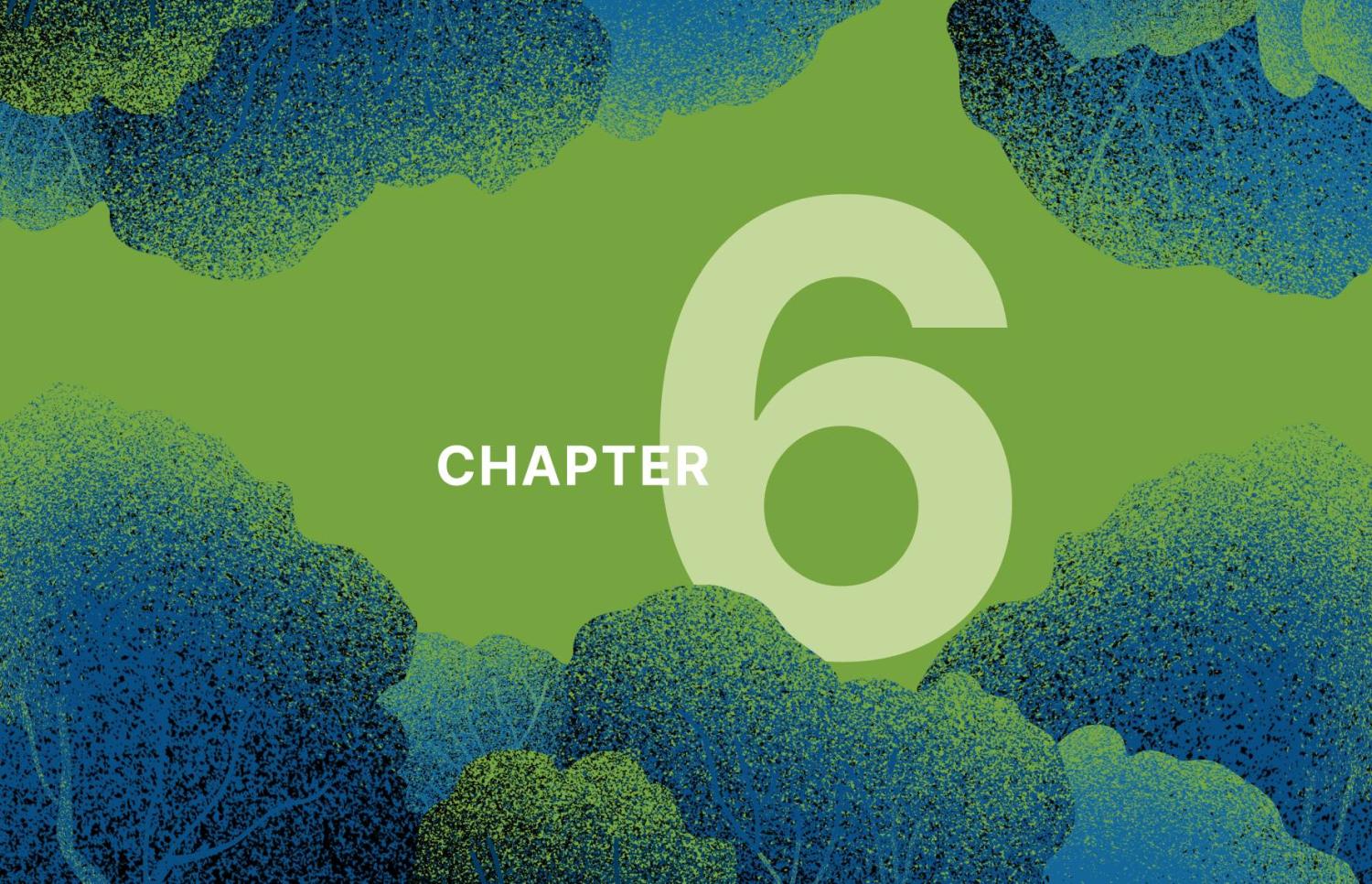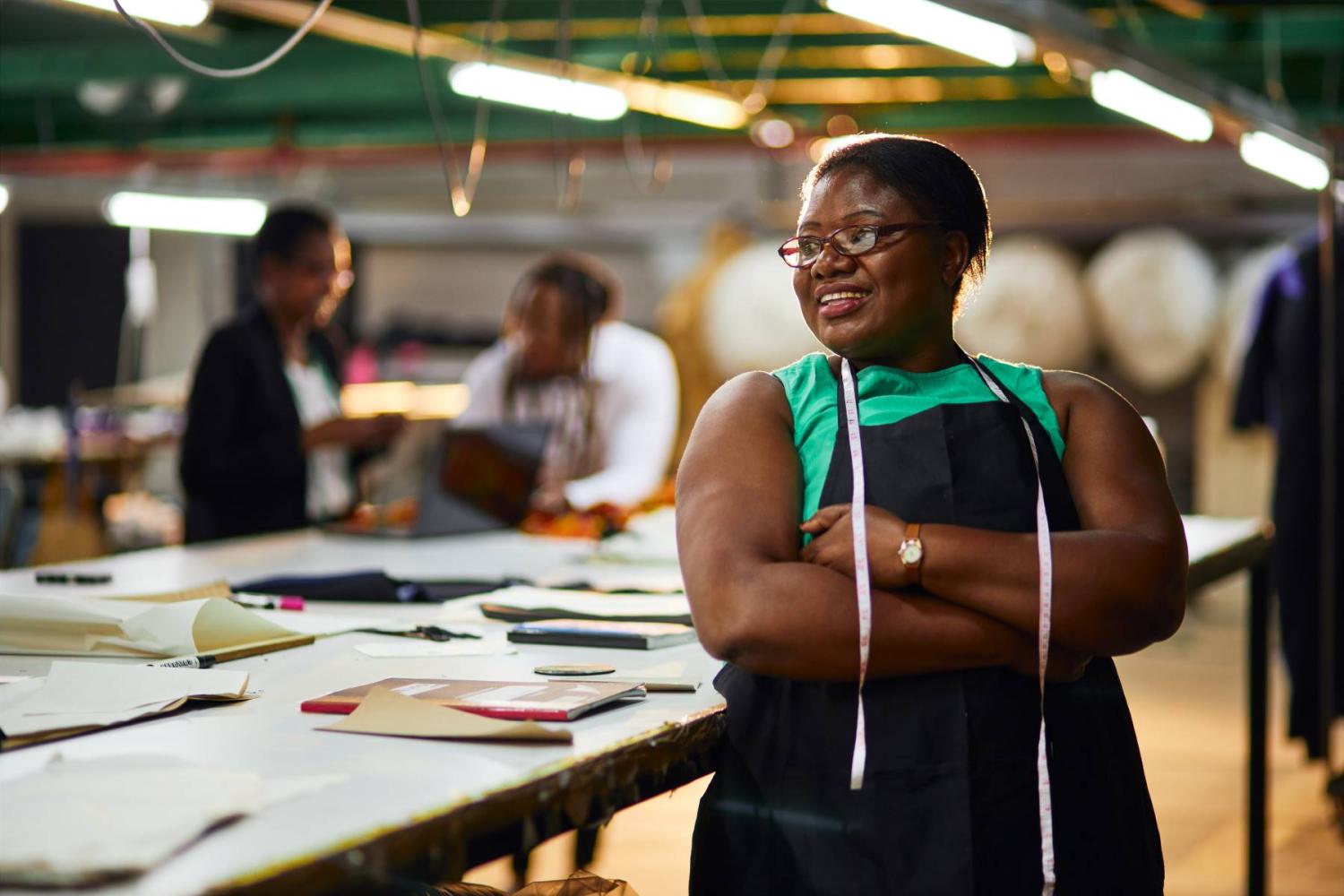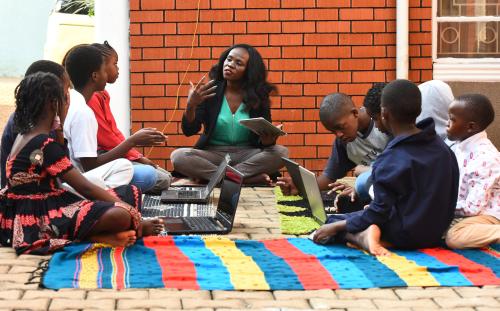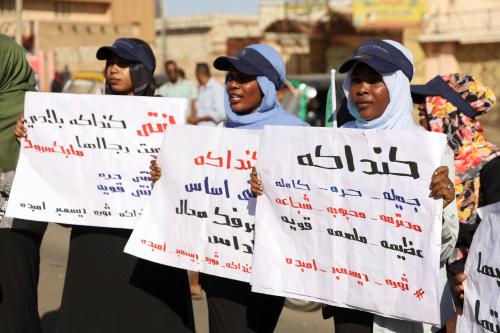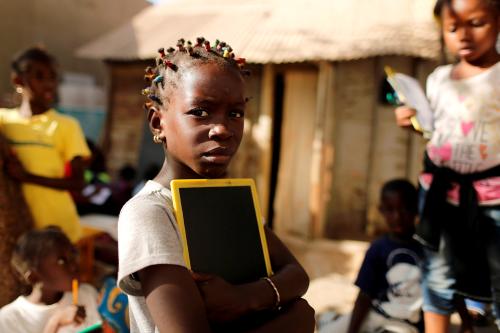In Chapter 6 of Foresight Africa 2024, our authors explore the ways Africa’s women and girls are increasing opportunity for all.
Essay
A feminist approach to the climate crisis
By Wanjira Mathai, Managing Director, Africa and Global Partnerships, World Resources Institute
As we look to 2024, we are in peril. The climate crisis is intensifying, with 2023 almost certainly the hottest year on record. We’re on course to exceed countries’ Paris Climate Agreement commitments to limit the rise in temperature to 1.5 degrees Celsius. We’re experiencing now the consequences of global heating—wildfires, droughts, unprecedented rainfall, floods, and record ocean temperatures—and the upending of and loss of lives and livelihoods that result.
Africa didn’t create the climate crisis, but we’re on its frontlines, and our women and girls are most affected. Women are primarily responsible for making up for household deficits in food, water, and income for basic needs. And it is girls’ schooling, training, and life choices that are most curtailed when difficulties arise. Much of this feels personal. My husband and I live and work in Nairobi, and we have two daughters. In the last few years, Kenya has seen persistent drought, a locust invasion, COVID-19, shortages of food and fertilizer caused by Russia’s war in Ukraine, and high prices for basic goods. Because of food insecurity and household poverty, girls are forced to drop out of school and marry early. More than 50 million girls in sub-Saharan Africa aren’t receiving an upper secondary school education, and 30 million1 who could be in primary or lower secondary school are not.
These women and girls are facing the climate crisis with courage and creativity, resilience, risk-taking, and are building solutions that make their communities safer and stronger.
I’m angry that governments in the Global North are rolling back policies to reduce greenhouse gas emissions to achieve “net zero.” I’m furious that fossil fuel corporations use “greenwashing”2 campaigns to undermine climate action even as they rack up record profits. I’m dismayed at the shortfalls in investment and affordable finance for Africa’s just transition in the energy sector, holding back green industrialization and the end of dehumanizing poverty. My hope rests with the determination I see in women of all ages. They are climate activists, tree-nurturers, landscape-restoration champions, clean-energy entrepreneurs, advocates, academics, teachers, mothers, and daughters.
These women and girls are facing the climate crisis with courage and creativity, resilience, risk-taking, and are building solutions that make their communities safer and stronger. We have to support and listen to them, if we’re to tackle the climate emergency. We need policies and funding to expand their access to education, including at the tertiary level. We should invest in them in the clean energy and green tech sectors. We should fight for their equality in political representation and governance, to make sure more of us are in the room where decisions are being made on climate policies and programs.
Fortunately, the women of the present and future can look to those who went before. The Green Belt Movement (GBM), the creation of my mother Wangari Maathai, has coordinated women’s networks for almost half a century, planting over 50 million trees in Kenya alone. At World Resources Institute (WRI), we’re drawing on community-level organizing and local knowledge embedded in GBM’s work. We’re seeding (literally) the restoration of three key ecosystems: the river basin of the Democratic Republic of Congo, Burundi, and Rwanda; the southern half of Ghana, known as the “cocoa belt”; and Kenya’s Greater Rift Valley.
Much of the initial funding flowing through WRI’s Restore Local initiative is for women’s groups and women-led businesses to plant indigenous trees to replenish soils, protect against floods, generate value-added products, and, of course, store carbon. The need, and potential impact, couldn’t be greater. Over 60% of Africa’s soil is degraded or depleted, and of the 40 countries identified as most vulnerable to the climate crisis, more than half are in Africa.
At the same time, Africa has enormous potential to show the world a new path to a viable future: a huge potential for clean energy, responsible extraction of mineral wealth, protection and restoration of our ecosystems, and developing capacity among our fast-growing, youthful populations. At the heart of this vision, we need to trust women and lift up their voices. Men must lose their fear! By activating the feminist energy in all of us, we can strengthen collaboration, create space for alternative voices, collective action, and justice. With this energy central, we vastly increase our impact in not only addressing the climate crisis but also improving people’s lives.
Viewpoints

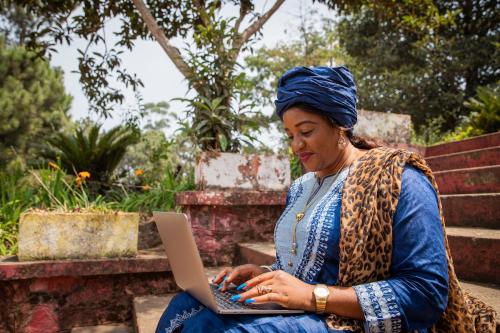
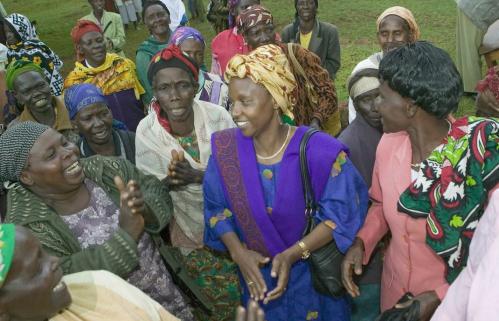


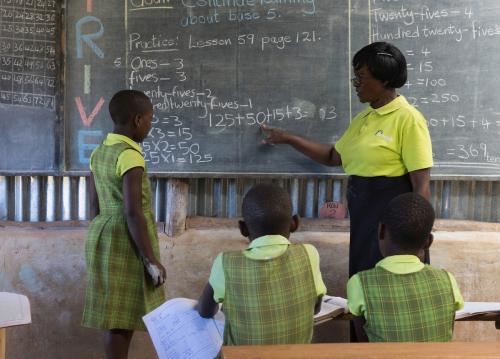
More from Foresight Africa 2024
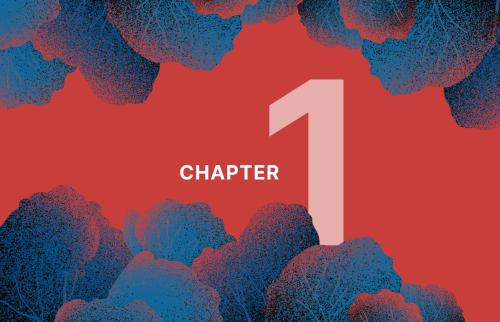
In Chapter 1, our authors share policy options to address economic challenges facing Africa.
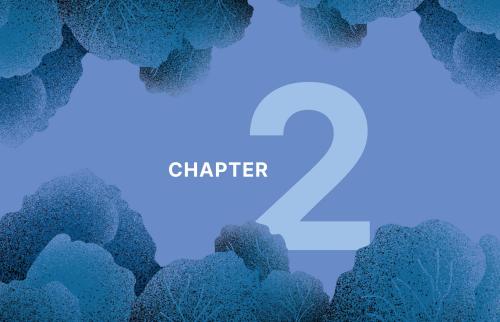
In Chapter 2, our authors tackle the existential climate change crisis.
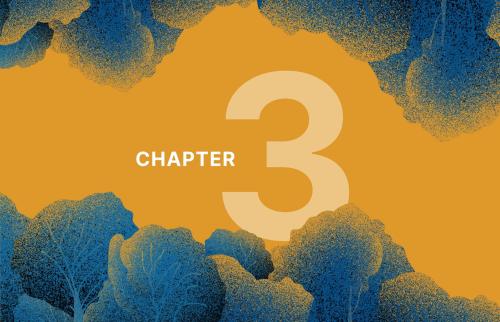
In Chapter 3, our authors focus on policies to support Africa’s entrepreneurs and small businesses.
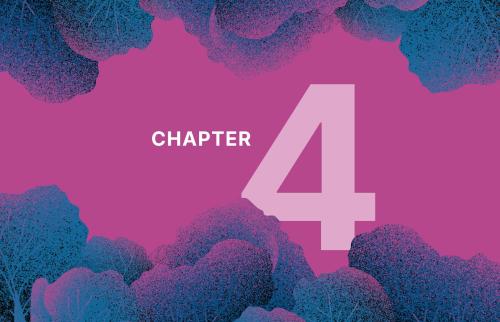
In Chapter 4, our authors examine trends in regional economic integration and trade.
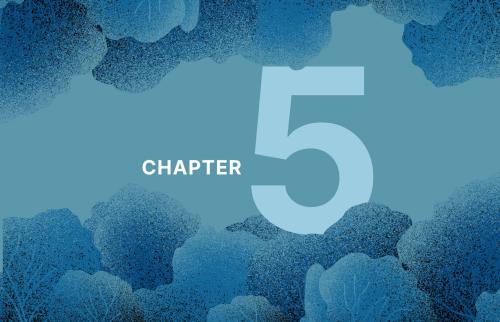
In Chapter 5, our authors consider policy options to unlock the potential of the digital economy.
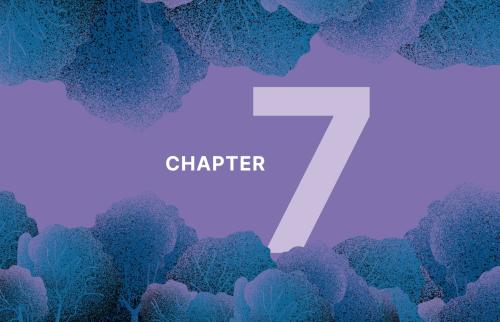
In Chapter 7, our authors delve into ways African leaders can regain the trust of their citizens.
-
Footnotes
- Vanessa Nakate, Louis Nderi. 2022. “Book excerpt: Education for girls is essential for climate justice.” Greenpeace.
- Damian Carrington. 2022. “Oil firms’ climate claims are greenwashing, study concludes.” The Guardian
The Brookings Institution is committed to quality, independence, and impact.
We are supported by a diverse array of funders. In line with our values and policies, each Brookings publication represents the sole views of its author(s).
